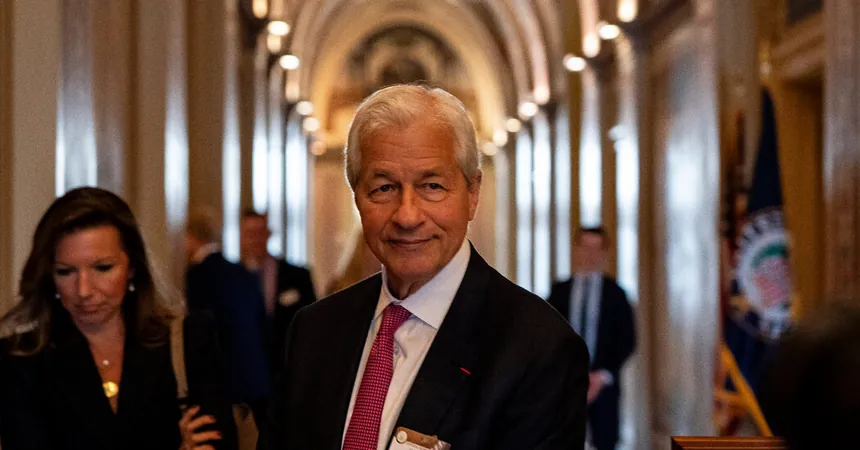
JPMorgan Chase CEO Jamie Dimon Sounds Alarm on Trump’s Tariffs Dangers
2025-04-07
Author: Jessica Wong
Introduction
In a bold warning that has sent ripples across Wall Street, Jamie Dimon, the CEO of JPMorgan Chase, voiced serious concerns about the economic repercussions of President Trump's recent tariffs. In his annual letter to shareholders, he stressed that these tariffs could lead to both immediate financial distress and long-term damage to America's global trade relationships.
Impact on Inflation and Recession
Dimon's stark message highlights the potential for rising inflation and an increasing risk of recession prompted by the tariffs. 'The recent tariffs will likely increase inflation and are causing many to consider a greater probability of a recession,' he stated, illuminating growing apprehensions among corporate leaders regarding the fallout from the trade measures.
Pre-existing Economic Concerns
Even before these tariffs were imposed, Dimon noted that the U.S. economy was already showing signs of fatigue after years of robust growth. He pointed to alarming fiscal deficits, the urgent need for infrastructure investments, and inflated stock market valuations that persist well above historical norms, even amid recent market sell-offs.
U.S.-China Trade War
The potential U.S.-China trade war, in particular, has raised the stakes, with China retaliating against U.S. tariffs with punitive countermeasures of up to 34%. This escalating trade conflict not only risks damaging consumer and investor confidence but also threatens the hallowed status of the dollar as the world's dominant reserve currency. Dimon stressed, 'If America, for whatever reason, becomes a less attractive investment destination, the U.S. dollar and the economy could suffer if foreigners sold their U.S. assets.'
Recession Predictions and JPMorgan's Resilience
While Dimon's caution reflects conversations among economists who are increasingly predicting a recession could be imminent, he stopped short of committing to a stance on recession probabilities in his letter. However, he did provide reassurance about JPMorgan's resilience against potential market disruptions caused by tariffs, noting that the bank's traders have historically gained from fluctuations in the financial markets.
Global Economic Implications
Despite this reassured stance, Dimon emphasized the broader implications for the global economy. 'It is not particularly good for the capital markets,' he remarked, highlighting the destabilizing effects of tariff-related volatility.
Call for Resolution
As these trade disputes develop, Dimon urges for a swift resolution, arguing, 'The quicker this issue is resolved, the better, because some of the negative effects increase cumulatively over time and would be hard to reverse.'
Conclusion
With experts and economists keeping a watchful eye on the evolving scenario, many are left asking: What will be the ultimate impact of Trump's tariff policies on the American economy and global markets? The stakes have never been higher.



 Brasil (PT)
Brasil (PT)
 Canada (EN)
Canada (EN)
 Chile (ES)
Chile (ES)
 Česko (CS)
Česko (CS)
 대한민국 (KO)
대한민국 (KO)
 España (ES)
España (ES)
 France (FR)
France (FR)
 Hong Kong (EN)
Hong Kong (EN)
 Italia (IT)
Italia (IT)
 日本 (JA)
日本 (JA)
 Magyarország (HU)
Magyarország (HU)
 Norge (NO)
Norge (NO)
 Polska (PL)
Polska (PL)
 Schweiz (DE)
Schweiz (DE)
 Singapore (EN)
Singapore (EN)
 Sverige (SV)
Sverige (SV)
 Suomi (FI)
Suomi (FI)
 Türkiye (TR)
Türkiye (TR)
 الإمارات العربية المتحدة (AR)
الإمارات العربية المتحدة (AR)